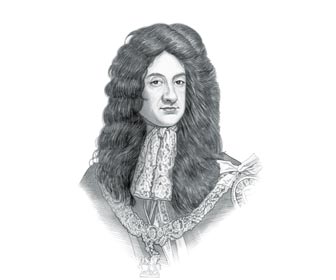Government in the 13 Colonies
There were three types of colonies and systems of government in the British Colonies of North America - Proprietary Colonies, Charter Colonies and Royal Colonies. The Royal Colonies were ruled directly by the English monarchy and the Charter Colonies was generally self-governed, and their charters were granted to the colonists as opposed to proprietors. Prior to the establishment of Royal, Charter and Proprietary colonies the British colonization of North America had been financed and settled under the jurisdiction of joint stock companies operating under charters granted by the crown.
Proprietary Colonies
Proprietary Colonies were types of settlements in British Colonial America that were established between 1660 and 1690. King Charles II established the first Proprietary Colonies in order to repay debts and favors. The British crown awarded their most loyal supporters with vast tracts of land in colonial New York, New Jersey, Delaware, Pennsylvania, Maryland, and the Carolinas. The proprietors were given the authority to supervise and develop the colonies into successful and profitable enterprises. The lands were quickly colonized with British subjects at the expense of the proprietors.
Proprietary Colonies - the Power of the Lords Proprietors
Proprietary colonies in North America were owned by an individual proprietor or by a group of proprietors under a charter from the English monarch. The men who received these grants were called Proprietary Governors or "Lords Proprietors". The vast powers of the Lords Proprietors governed the Proprietary Colonies as landlords or overseers. The following facts detail their powers and political privileges:
- Proprietary Colonies: The land was titled in the name of the proprietor - not the king
- Proprietary Colonies: The proprietors established land grants and purchases
- Proprietary Colonies: The Lords proprietors recouped their investments in the colonies by collecting yearly land fees from the settlers who had purchased land within the colony. These farm-fees were called quitrents
- Proprietary Colonies: Lords Proprietors could create courts and make laws and issue decrees. They could also hear appeals and pardon offenders
- Proprietary Colonies: Lords Proprietors could establish churches
- Proprietary Colonies: Lords Proprietors could establish towns and ports and ordered the construction of public buildings
The Demise of Proprietary Colonies
By 1690 there was considerable British concern about the growing independence of the colonists in the Proprietary colonies and complaints about mismanagement. These concerns led to the end of proprietary grants and an attempt to change all Proprietary Colonies into Royal Colonies. Just before the Revolutionary War, there were three propriety colonies: Delaware, Maryland, and Pennsylvania. After the American Revolutionary War these three former proprietary colonies paid the heirs to the Calvert (Maryland), Penn (Pennsylvania), and Grandville (Carolina) minimal amounts for confiscated lands.
